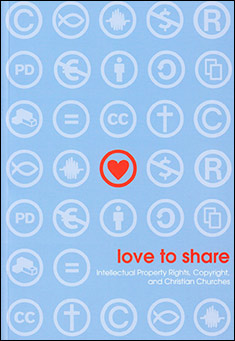Intellectual Property Rights, Copyright, and Christian Churches.
- Churches are struggling with the complexity of copyright laws and the restrictions they face when they want to use liturgical resources in a worship setting or publish non-profit worship material.
- It is difficult to find resources that can be freely shared through the Internet.
- It is hard to know how to use worship material from other countries in an equitable and just way.
- It is not easy to know where to go to find advice or to avoid being trapped by intellectual property (IP) laws.
Churches, individuals, and Christian and ecumenical organizations are facing challenges when dealing with these issues. Their struggle is intensified because of the larger context of globalization, where the rules of the market dominate and a culture of commodification is everywhere. While it is important to understand the logic of the market and the laws and regulations that apply to intellectual property, there are other issues that need to be taken into consideration.
One of the difficulties of working globally is dealing with differing understandings of intellectual property and how to harmonize these understandings so that we can have a common view in the ecumenical movement. One concrete example of how these differing understandings create challenges is the case of a church or organization develop-ing a worship resource for an ecumenical gathering and encountering different understandings of copyright from the copyright holders.
This struggle is made harder because of the larger context of globalization, where the rules of the market dominate and a culture of commodification is everywhere. While it is important to understand the logic of the market and the laws and regulations that apply to intellectual property, there are other issues that need to be taken into consideration.
The current century is one of knowledge. Nations’ ability to convert knowledge into wealth and social goods through innovation will deter-mine their futures. The increasing commodification of information poses challenges for all. Because of this, issues of ip are becoming critically important all around the world. It is crucial that the church develop a feasible model to protect community and private interests.
At the same time, authors and communities who are creating worship resources are concerned that the integrity of their work is not being respected, that works they created to be shared by the whole Christian family and not for private profi t have become the property of individuals and companies that commodify these works and make money from them.
In biblical times, the Christian community as described in Acts 4:32-35 was not able to dissociate its community vision from the market. As Christians today we face this same dilemma.




